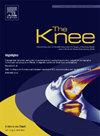Consensus statement on problematic knee replacement and revision knee replacement: A collaboration between EKS and BASK
IF 1.6
4区 医学
Q3 ORTHOPEDICS
引用次数: 0
Abstract
Background
Up to 20% of primary total knee arthroplasty (TKA) patients are not satisfied with their outcome. Both the analysis of these patients and revision surgery can be complex, expensive and outcomes can vary widely.
Aim
The aim of this study was to deliver consensus recommendations regarding outpatient analysis, surgical treatment and arrangement of clinical services concerning patients with a problematic TKA or revision knee replacement (RTKA).
Methods
Members of BASK and EKS were invited to attend a joint meeting in London, UK (December 2019). A formal consensus process was undertaken at the meeting incorporating a multiple round Delphi exercise, with group discussion of areas of agreement and disagreement between rounds. Eighty delegates attended the meeting and five consensus statements were considered, with a threshold level of 80% agreement required as the definition consensus. A further consensus meeting of EKS members in Kitzbuhl, Austria (January 2023) followed similar methodology and considered a further four statements on this topic.
Results
From the first meeting, 5 consensus statements with accompanying supporting evidence and text were agreed. 1) In suspected infection, a recognised diagnostic pathway and definition should be used (e.g. MSIS, ICM, EBJIS) and documented; 2) Revision of an infected TKA should be treated in units with a multidisciplinary team; 3) Initial investigation of a problematic TKA should include a minimum of: clinical investigation, X-Rays and blood tests, with further discussion with the MDT if required; 4) Units providing RTKA should have surgeons with evidence of specific training or experience, and on-going minimum unit numbers; 5) National Orthopaedic/Knee Societies should develop a strategy on Revision TKA provision taking into account: workforce, revision burden, location, hospital infrastructure.
From the second meeting a further 4 consensus statements were agreed. Two statements were agreed text content answering the questions: 1) What should be included in the basic diagnostic workup of a painful TKA? and 2) Which are the key factors for surgeons to consider before offering the patient revision surgery? The two other agreed statements are: 3) Pre-operative diagnosis is related to outcome in RTKA and 4) RTKA for pain, without a surgically treatable diagnosis, is unpredictable.
Conclusions
The agreed joint BASK-EKS consensus statements and the EKS consensus statements on the assessment of problematic RTKA are recommended as the contemporary basis of optimal care for these patients and should inform future training and service developments.
关于有问题的膝关节置换术和改良型膝关节置换术的共识声明:EKS和BASK的合作。
背景:高达20%的原发性全膝关节置换术(TKA)患者对其结果不满意。对这些患者的分析和翻修手术都可能是复杂的,昂贵的,结果也可能相差很大。目的:本研究的目的是就有问题的全膝关节置换术(RTKA)患者的门诊分析、手术治疗和临床服务安排提供共识建议。方法:邀请BASK和EKS成员参加2019年12月在英国伦敦举行的联合会议。会议进行了正式的协商一致进程,其中包括多轮德尔菲演习,并在各轮之间就达成一致和存在分歧的领域进行小组讨论。80名代表出席了会议,审议了5项共识声明,要求80%的共识作为定义共识的门槛水平。2023年1月,在奥地利Kitzbuhl举行的EKS成员进一步共识会议采用了类似的方法,并考虑了关于该主题的另外四项声明。结果:从第一次会议开始,达成了5项共识声明,并附有支持证据和文本。1)在疑似感染中,应使用公认的诊断途径和定义(如MSIS、ICM、EBJIS)并记录;2)修改感染的TKA应在多学科小组的单位进行治疗;3)对有问题的TKA的初步调查应至少包括:临床调查、x光检查和血液检查,必要时与MDT进一步讨论;4)提供RTKA的单位应该有经过专门培训或有经验的外科医生,以及持续的最低单位数量;5)国家骨科/膝关节协会应制定一项关于修订TKA规定的战略,考虑到:劳动力、修订负担、地点、医院基础设施。从第二次会议开始,又议定了4项协商一致声明。两个陈述被同意的文本内容回答了以下问题:1)疼痛性TKA的基本诊断检查应包括哪些内容?2)外科医生在为患者进行翻修手术前需要考虑哪些关键因素?另外两个一致同意的说法是:3)术前诊断与RTKA的结果有关;4)RTKA治疗疼痛,如果没有手术治疗的诊断,是不可预测的。结论:建议将BASK-EKS联合共识声明和EKS关于问题性RTKA评估的共识声明作为这些患者最佳护理的当代基础,并为未来的培训和服务发展提供信息。
本文章由计算机程序翻译,如有差异,请以英文原文为准。
求助全文
约1分钟内获得全文
求助全文
来源期刊

Knee
医学-外科
CiteScore
3.80
自引率
5.30%
发文量
171
审稿时长
6 months
期刊介绍:
The Knee is an international journal publishing studies on the clinical treatment and fundamental biomechanical characteristics of this joint. The aim of the journal is to provide a vehicle relevant to surgeons, biomedical engineers, imaging specialists, materials scientists, rehabilitation personnel and all those with an interest in the knee.
The topics covered include, but are not limited to:
• Anatomy, physiology, morphology and biochemistry;
• Biomechanical studies;
• Advances in the development of prosthetic, orthotic and augmentation devices;
• Imaging and diagnostic techniques;
• Pathology;
• Trauma;
• Surgery;
• Rehabilitation.
 求助内容:
求助内容: 应助结果提醒方式:
应助结果提醒方式:


